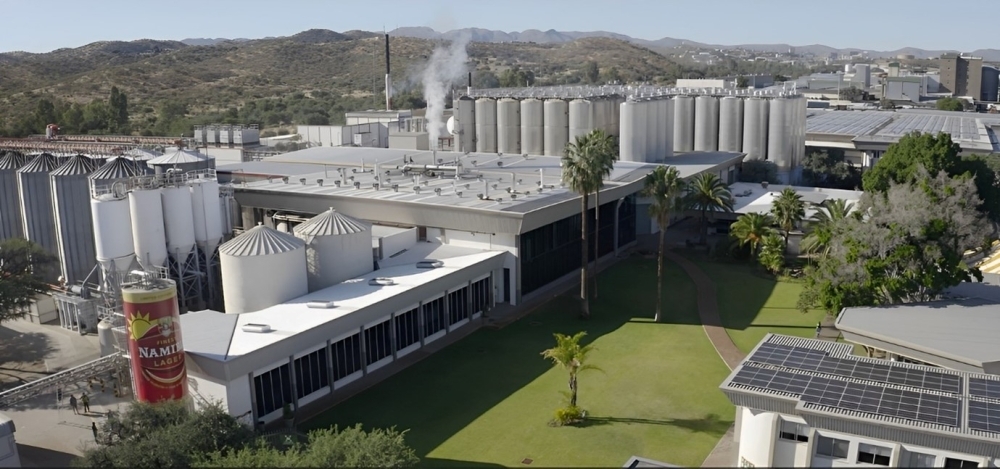NBL raises the bar on sustainability
Brew a better world
Namibia Breweries Limited (NBL) is accelerating its commitment to sustainability by pledging to achieve zero emissions across its operations by 2030, a decade ahead of the Paris Agreement goal.This ambitious target will be realised through a comprehensive strategy focusing on increased renewable energy usage, enhanced energy efficiency, emission reduction across NBL’s value chain, and the adoption of low-carbon technologies and nature-based solutions.
NBL, a pioneer in sustainable manufacturing, has a longstanding history of innovative sustainability projects. Notably, it installed Africa’s first industrial-scale biomass boiler in 2016, reducing carbon emissions by over 63 000 tons. This state-of-the-art boiler currently fulfils 85% of the brewery's thermal energy requirements, showcasing NBL’s successful transition towards renewable thermal energy sources.
NBL's managing director, Peter Simons, emphasized the company's commitment to environmental stewardship and social responsibility, framing it within their Brew a Better World 2030 strategy. The brewery has undertaken circular solutions, such as waste recycling and water treatment, supporting healthy local ecosystems while working towards net-zero emissions.
In pursuit of enhanced energy efficiency, NBL installed over 75 energy meters for real-time tracking and data-driven targeting of electricity consumption. Two rooftop solar plants, commissioned in 2013 and 2023, contribute 22% to NBL's total electricity needs.
Water availability
NBL's water sustainability efforts include drilling five onsite boreholes and constructing a borehole water treatment plant, providing up to 80% of its water supply during drought periods. This strategy ensures sustainable water availability amidst changing climate conditions.
For waste reduction, NBL implemented an integrated management system, embracing initiatives like increased use of recyclable packaging and repurposing spent yeast, resulting in a significant reduction in solid waste sent to landfills.
Looking ahead, NBL outlines ambitious commitments for the next decade, including transitioning to 100% renewable electricity by 2030, reducing carbon emissions by 30% across its value chain through supplier partnerships, eliminating waste sent to landfill by 2025, and balancing 100% of water use in water-stressed areas through community watershed projects.
Simons highlighted the urgency of addressing climate change, acknowledging that while progress has been made, the company's work has only just begun.




